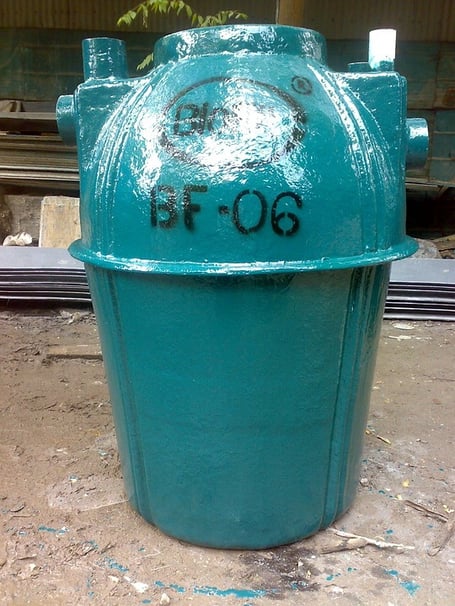Reports show there has ‘never been a better time to consider selling a rural property’, as home and land in these areas are currently in high demand. Rural house prices have risen by 29% since 2018, and farmland value by 14%. Meanwhile, Google searches for ‘Rural Homes for Sale’ are up 900% in the last three months (to 10,000 monthly UK searches).
However, experts are warning residents looking to put their countryside home or farm on the market, that they could be caught unaware by a little-known rule change that is understood to affect over half a million UK properties in largely agricultural areas - and at least 8,600 homeowners in Devon specifically.
Tony Hill, head of professional negligence at Been Let Down explains: “In January 2015, a new government regulation came into force that relates to septic tanks; the way they discharge waste, their state of repair and the suitability of their size.
“Applicable homeowners were given until January 2020 to upgrade their tanks to ensure compliance with the new rules, but experts believe that many tanks are yet to be updated, simply because owners aren’t aware they are required to do so.
“According to official figures, Devon is understood to be a potential hotspot for homes with septic tanks, due to its high number of registered farm holdings.
“According to reports, most farm holdings have one or more septic tanks and there are 8,600 registered farm holdings in Devon alone.
“Solicitors who are managing the sale of a property are expected to notify the buyer that the property has a septic tank and tell them about the new regulations.
“It’s then up to the buyer to check if the septic tank meets regulations and either replace/upgrade it, or ensure the owner is aware this needs to happen, as a condition of sale.
“However, many conveyancers aren’t aware of the regulations themselves, leaving buyers and sellers at risk of unexpected upgrade costs, a reduction in property value, or even a potential £100,000 fine from the Environment Agency.
“In some cases, where a septic tank does not comply with new regulations, homeowners could even face up to three months in prison when convicted in a magistrates’ court.”
A solicitor failing to notify the buyer of new septic tank regulations is considered an act of conveyancing negligence, and the owner affected by this mistake may wish to claim for compensation.
Been Let Down has been experiencing a growing number of cases relating to septic tank conveyancing negligence. In fact, they have seen a 112% increase (MoM – January 23-February 23) in Septic Tank Negligence claim enquiries, and estimated damages range from between £10,000 to £50,000 per case (but around £18,000 on average).
Compensation is determined by the financial loss experienced by the claimant, such as costs to update the septic tank in line with regulations, or an impact on the value of their house after the issue is highlighted to a prospective buyer.
This issue typically impacts:
People who bought their property with a septic tank after January 2020 and were not notified of the new regulation by their solicitor, and are now only aware of the issue when they come to sell
People who bought their property with a septic tank after January 2020 and were not notified of the new regulation by their solicitor and have recently discovered they need to upgrade their tank to make it compliant
People who are in the process of buying a property with a septic tank and may want to negotiate on the property value if the tank is not yet compliant
Tony added: “This is a growing issue, and something that we believe more rural homeowners and house-hunters need to be made aware of.
“In this instance, negligence occurs when the conveyancer (the solicitor handling the purchase) doesn’t tell the buyer about the new regulations. Letting a buyer know about the regulations could be as simple as a standardised sentence in terms and conditions or check list, so any complications relating to the issue really is easily avoidable.
“We’re finding that a lot of solicitors don’t know about the law-change though, and some are therefore being unintentionally negligent as a consequence.
“For those affected, typically a claim must be made within six years of purchase of the property with a defective tank.
“Not only do non-compliant septic tanks pose individual financial risks to homeowners, but they could also have a wider spread impact on the health of our waters, including rivers and lakes. In some areas, the deteriorating quality of surface water has potential for long-term social impacts and could well affect the likes of tourism and property prices in those areas.”
For more information, visit this page: www.beenletdown.co.uk/property-negligence/septic-tank-solicitor-negligence-claims





Comments
This article has no comments yet. Be the first to leave a comment.